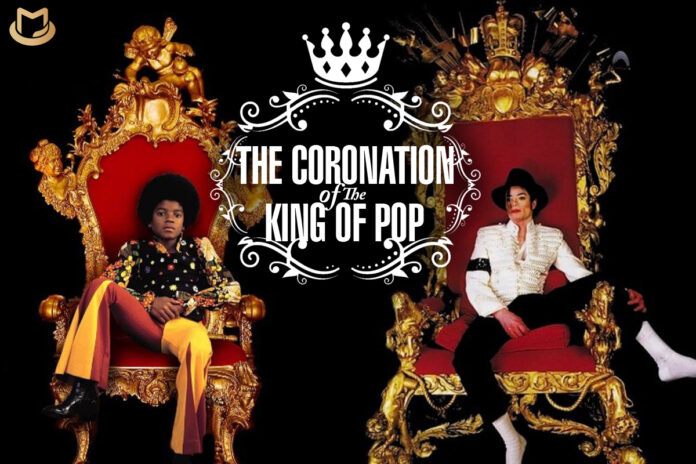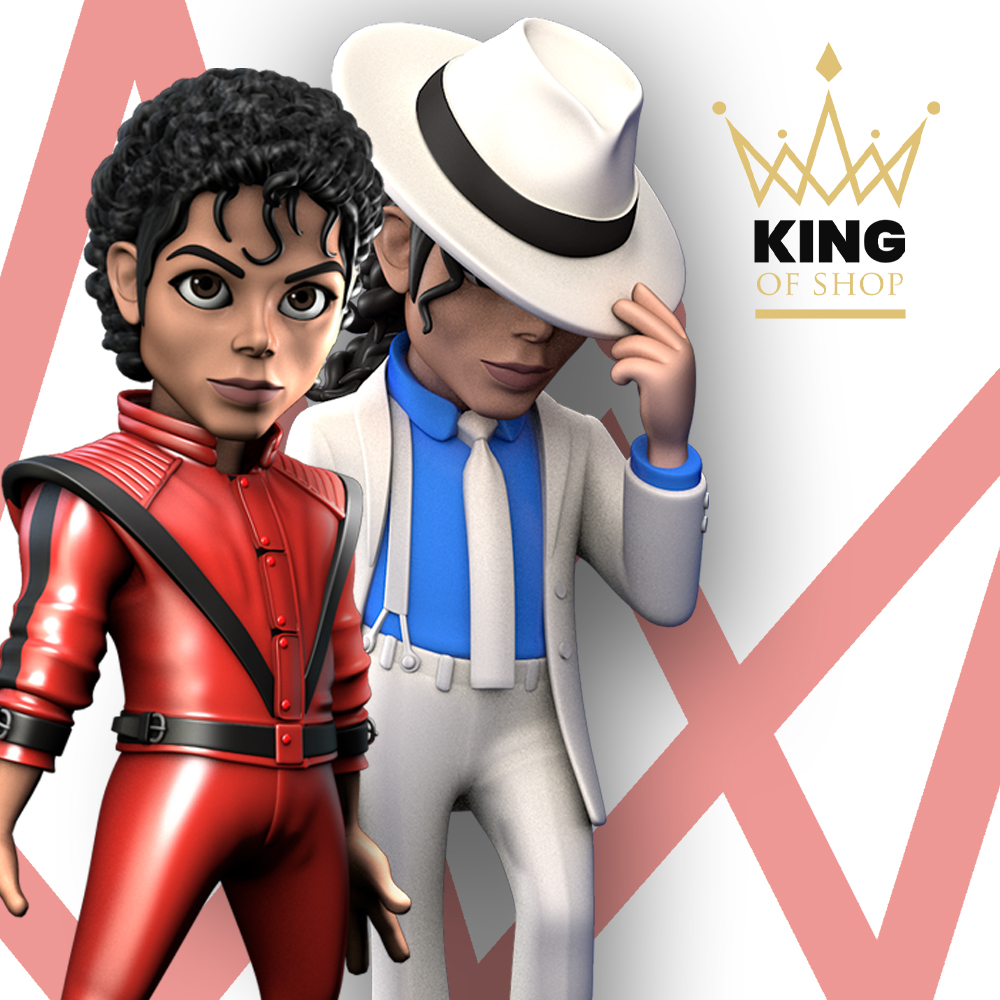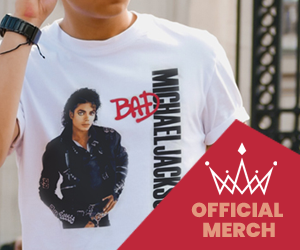Today, the coronation of Charles III and his wife, Camilla, as king and queen of the United Kingdom and the other Commonwealth realms is taking place on Saturday at Westminster Abbey.
What a perfect day to talk about the coronation of the King of Pop, Michael Jackson.
Michael Jackson, born in Gary, Indiana, in 1958, rose to fame in the late 1970s as a member of the Jackson 5, a musical group that also included his older brothers. But it was in the 1980s that Michael truly became a global superstar and earned his moniker as the “King of Pop.”
There were several factors that contributed to Michael’s rise to fame and his ultimate status as one of the most iconic musical figures of all time. Here are some of the key reasons why Michael became the King of Pop:
- Talent: Michael Jackson was an incredibly gifted musician and performer from a young age. He possessed a powerful voice, impressive dance skills, and a unique sense of style that set him apart from his peers. He was also a prolific songwriter and producer, and was involved in the creation of many of his biggest hits.
- Innovation: Michael was not content to simply follow the musical trends of his time; he constantly pushed the boundaries and experimented with new sounds and styles. His use of electronic instrumentation and his incorporation of elements from a wide range of musical genres helped to define the sound of pop music in the 1980s.
- Showmanship: Michael was a consummate performer who knew how to put on a show. His elaborate stage productions, including his famous moonwalk and his use of pyrotechnics and other special effects, helped to make his concerts unforgettable experiences for fans.
- Iconic music videos (short films): Michael was one of the first artists to recognize the potential of music videos as a medium for promoting his music and enhancing his image. His groundbreaking videos, including “Thriller,” “Beat It,” and “Billie Jean,” not only showcased his incredible dance moves but also told compelling visual stories that captivated audiences.
- Cultural significance: Michael Jackson’s music and image had a profound impact on popular culture in the 1980s and beyond. He broke down racial barriers in the music industry and helped to bring African American culture to the mainstream. He also used his platform to promote social causes, such as the fight against apartheid in South Africa.
All of these factors contributed to Michael Jackson’s incredible success as a musician and performer, and helped to cement his status as the King of Pop. But perhaps the most important factor was his ability to connect with audiences on a deep emotional level.
Michael’s music was incredibly catchy and danceable, but it also had a depth and sincerity that resonated with fans around the world. His songs tackled themes like love, loss, and social justice, and his lyrics were often deeply personal and reflective of his own experiences.
The term “King of Pop” was first used in reference to Michael Jackson in 1989, during the Soul Train Music Awards. Michael was presented with the award for Entertainer of the Year, and the host of the show, actor and comedian Eddie Murphy, referred to him as the “King of Pop” in his introduction. The term quickly caught on and became synonymous with Michael Jackson’s name, cementing his status as one of the most iconic and influential musical figures of all time.
There is a popular belief that Elizabeth Taylor, a close friend of Michael Jackson, was the one who first referred to him as the “King of Pop.” However, this is not entirely accurate. While Liz was certainly a champion of Michael’s talent and was instrumental in introducing him to a wider audience, she did not actually coin the term “King of Pop.”
As mentioned earlier, the first documented use of the term “King of Pop” in reference to Michael Jackson was at the 1989 Soul Train Music Awards, which was several years after Liz had become close friends with Michael. However, it is possible that Taylor may have used the term in private conversations or interviews, and her support for Michael certainly helped to boost his popularity and solidify his status as a cultural icon.
While it is certainly possible for new pop stars to achieve great success and popularity, it is unlikely that anyone will be able to completely replace or surpass Michael Jackson’s impact on the music industry and popular culture. Michael’s influence can be seen in the work of countless artists who have followed in his footsteps, from Beyoncé to Justin Timberlake to Bruno Mars.
However, it is important to note that the title “King of Pop” is a matter of cultural perception and can only be bestowed by the public and history itself. While Michael Jackson certainly earned the title through his incredible talent, innovation, and cultural significance, it is ultimately up to future generations to decide if anyone else can truly claim the throne.
That being said, there are certainly many talented artists working in the pop genre today who have the potential to make a significant impact and inspire future generations. For example, artists like Ariana Grande, Billie Eilish, and Harry Styles have all achieved immense popularity and critical acclaim for their music and performances.
However, it is important to recognize that the music industry and the world at large have changed significantly since the height of Michael’s career in the 1980s and 1990s. The rise of social media and streaming platforms has fundamentally altered the way that music is created, distributed, and consumed, and it remains to be seen how these changes will continue to shape the pop landscape in the years to come.
Ultimately, whether or not a new King of Pop emerges will depend on a variety of factors, including the quality of the music itself, the artist’s ability to connect with audiences on a deep emotional level, and the cultural context in which they operate. While it is unlikely that anyone will ever fully replace Michael Jackson as the original King of Pop, there is certainly room for new artists to make their mark and leave their own unique legacies in the world of pop music. Michael Jackson’s legacy as the King of Pop is a testament to his incredible talent, creativity, and showmanship, as well as his ability to touch the hearts and minds of millions of fans around the world. Even in the years since his tragic death in 2009, his music and his influence continue to live on, inspiring new generations of fans and musicians alike.
And what about the title “King of Pop”?
To the best of my knowledge, Michael Jackson did not trademark the term “King of Pop.” While Michael certainly embraced the title and was widely recognized as the King of Pop by the public and the media, there is no evidence that he ever sought to legally protect or enforce the term.
Despite Michael Jackson’s legal prowess, however, there is no indication that he ever attempted to trademark the term “King of Pop” or prevent others from using it. In fact, the term has been widely adopted by fans, journalists, and other artists as a way of paying tribute to Michael Jackson’s enormous impact on the music industry and popular culture.
The Estate of Michael Jackson has not copyrighted the term “King of Pop.” While the estate certainly has control over the intellectual property associated with Jackson’s music and image, including his name, likeness, and song titles, there is no evidence to suggest that they have attempted to claim exclusive ownership of the term “King of Pop.”
However, the Estate of Michael Jackson did sue a popcorn company over the use of the name “King of Pop.” In 2018, the estate filed a lawsuit against a company called Gourmet Gift Baskets, which was selling a line of popcorn under the brand name “King of Pop.”
The estate claimed that the use of the term “King of Pop” infringed on their trademark rights and created a false impression that the popcorn was somehow associated with or endorsed by Michael Jackson. The lawsuit sought an injunction to prevent Gourmet Gift Baskets from using the name, as well as damages for trademark infringement.
In response, Gourmet Gift Baskets argued that the term “King of Pop” was a generic description of popcorn and did not refer specifically to Michael Jackson. However, in 2019, a federal judge ruled in favor of the estate, finding that the use of the term created a likelihood of confusion among consumers and constituted trademark infringement.
As a result, Gourmet Gift Baskets was ordered to cease using the name “King of Pop” in connection with its popcorn products, and the estate was awarded damages in the amount of $2.5 million. The case serves as a reminder of the importance of protecting intellectual property rights and the potential consequences of using a well-known brand name or trademark without permission.
Same for the fans, the Estate of Michael Jackson has also taken legal action to prevent a fan event from using the name “King of Pop Meeting.” In 2019, a group of Michael Jackson fans organized a gathering in Spain that was billed as the “King of Pop Meeting.” However, the estate objected to the use of the name, claiming that it infringed on their trademark rights and created a false impression that the event was somehow associated with or endorsed by Michael Jackson.
As a result of the estate’s objections, a Spanish court ordered the organizers of the event to change the name and refrain from using any Michael Jackson trademarks or copyrighted materials in their promotional materials or activities. The court also ordered the organizers to pay damages to the estate for trademark infringement.
While some fans were disappointed by the court’s decision, others understood the estate’s position and agreed that it was important to respect Michael Jackson’s intellectual property rights. The case serves as a reminder that even well-intentioned fan events and activities can run afoul of intellectual property laws if they use the name, likeness, or copyrighted materials of a celebrity without permission.
The same happened in France in 2011 with “King of Pop Meeting” which was renamed “KOP Meeting” and also in 2017 with “Michael Jackson: The Final Curtain Call – King of Pop.”
As a result of the estate’s objections, the organizers of those events were forced to change the names.
In conclusion, while Michael Jackson and his Estate did not trademark the term “King of Pop,” his influence on the pop genre and his cultural significance remain undeniable. The title is a testament to his talent, creativity, and enduring legacy, and it will likely continue to be associated with his name for many years to come.





Right, Elizabeth Taylor did nothing to increase his popularity. He was on some other level already THOUGH one could say she, “enhanced” it, I think. Certainly creating some level of intrigue if nothing else with the press which basically worked…again, I think, lol. With that said the reason he was understood to be the King Of Pop was a number of reasons but both sales of his music (and the few home videos that were done) and having the largest contract of all time in 1991 were the reasons why along with, “Thriller” being the worlds’s best selling l.p. of all time by a significant margin. It wasn’t just, “impact”. Dictators, tyrants, and thugs do that, lol.
The 1991 contract with Sony said he would do six studio l.p.s and three feature films. While he ended up not fully completing the contract as original started it would be changed where both parties were satisfied for him part ways. Only three studio l.p.s were done with one having the greatest hits (“HIStory Begins”) the remix l.p., and yet another compilation of hits (“The Number Ones”). They just dropped the feature films. There’s more to the story but the was basically it.
People had problems having this moniker but I think it was justified with not only his accomplishments financially but artistically, socially, setting records, and breaking boundaries that could be backed up with very specifically sales in his music. Whereas other recording artists such as Rhianna have made the bulk of their fortunes selling make up. The others you mention I don’t know their worldwide sales but if you were to ask me without looking at the internet they have sold sold next to nothing compared to most major selling recording artists from the 20th Century when people actually bought music at full price. It’s so bad for the industry now the general public don’t take interest in even stealing it anymore…